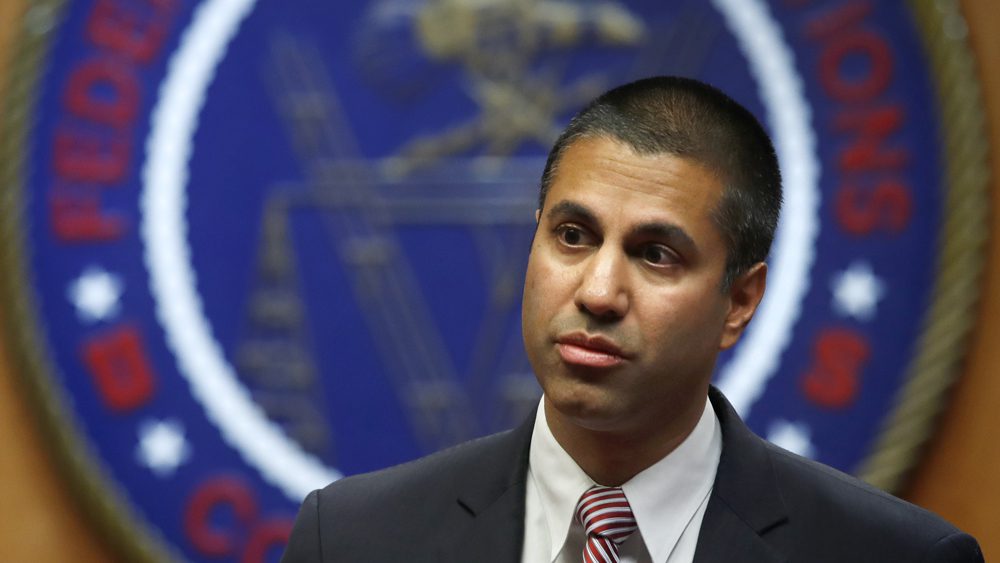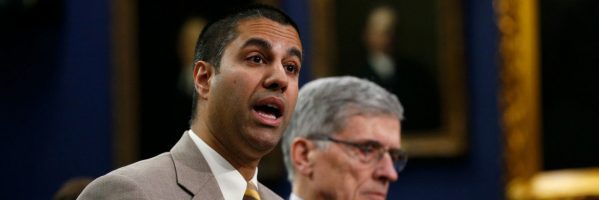The Potential Impacts of Net Neutrality on Higher Education

F.C.C. Chairman Ajit Pai’s decision last week to repeal Obama-era net neutrality regulations, which inhibited ISPs from paid prioritization and interfering with users’ online experiences, could have widespread implications beyond the speed of your Netflix stream.
A host of critics argue that the controversial new initiative essentially deregulates the Internet from a governmental vantage point and gives ISPs (internet service providers) free reign to control what you see as they see fit. That could mean offering fast lanes to the highest bidder—at the consumer’s expense, naturally—or censoring any content that might be remotely critical of, say, AT&T’s political position.
Pai believes the repeal will foster competition and ultimately benefit consumers. “Broadband providers will have more incentive to build networks, especially to underserved areas,” he told the NY Times after the F.C.C. cast its final votes on December 14. The vote split directly on party lines, with Republican commissioners winning by a count of 3-2.
After the vote was concluded, Mignon Clyburn, one of the two Democratic commissioners to vote no on the new provisions, said, “I dissent, because I am among the millions outraged. “Outraged, because the F.C.C. pulls its own teeth, abdicating responsibility to protect the nation’s broadband consumers.”

F.C.C. Chairman Ajit Pai. Photo via AP/Jacquelyn Martin
In terms of public relations, ISPs appear conflicted about which foot to lead with. According to Wired, in the months leading up to the repeal, Comcast publicly shared a net neutrality pledge and then quietly removed it once the votes were concluded, while Verizon promised not to open up fast lanes when it “already blocks mobile subscribers from accessing high-resolution video streams unless they upgrade to more expensive plans.”
It’s clear that this F.C.C. decision is a crippling blow to the utopian promise of the Internet, whose innovations were outgrowths of a level playing field. Netflix voiced disappointment last Friday, in which the company said “innovators, large and small, to oppose this misguided F.C.C. order.”
Consumer advocates are deeply concerned about the repeal’s impact on higher education, particularly in a moment where educators increasingly rely on YouTube lectures, video-chat services, and distance learning applications for their curricula.
There’s a scene in Werner Herzog’s 2016 documentary“Lo and Behold” in which he interviews Udacity founder and Stanford professor Sebastian Thrun about a robotics seminar, which was made available to the general public through open courseware technology. Two-hundred Stanford students enrolled in the class along with 160,000 students from the “open world.” Upon realizing that the highest achieving Stanford student ranked 413rd overall, Thrun remarked, “My God, for every great Stanford student, there are 412 amazingly great, even better students in the world.”
In an interview with Wired, Washington State University Vancouver’s Mike Caulfield explains, “Killing net neutrality will throw us back to the Dark Ages and the people that is likely to hurt most are actually rural populations that don’t have face-to-face access.”
In an interview with EdWeek, Consortium for School Networking Executive Director Keith Krueger explained matter-of-factly, “School systems will now face a bleak reality: reduced choices, higher prices, and fewer innovative tools.”
The introduction of “slow lanes” has the potential to impact peer-to-peer interactions like videoconferencing, as well as institution-wide adoptions of cloud-based models. Caufield explains, “Science or programming courses might require students to download large data sets that, if relegated to a slow lane, would take a prohibitive amount of time to download, or could help burn through data caps.”
There is a more pervasive worry that “education companies that rely on relatively fast delivery of content to schools could lose out to deep-pocketed vendors that can afford to pay internet service providers more for faster, higher-quality access,” according to an EdWeek article.
In a captivating Medium entry, Tressie McMillan Cottom, a sociology professor at Virginia Commonwealth University and faculty associate at the Berkman Center for Internet & Society, says that while changes to how Americans use the internet might not change right away, it will likely affect the amount of resources available to students who utilize online education.
“Online education was built, and sold to stakeholders, on the premise of affordable, accessible internet access,” Cottom writes.
“The concern is that companies tend to want to maximize profit. It isn’t hard to imagine telecom companies allowing companies who can pay for premium internet space to skew what is and is not available on the internet.”
Cottom telegraphs what she calls the “doomsday predictions”: charging escalating prices for basic internet consumption, leaving poorer, disadvantaged users with worse options. And that, Cottom explains, doesn’t even consider the potential socio-political ramifications. “For many, the end of net neutrality also means the regulation-by-capital of online spaces where minority groups shut out of traditional media, politics, and economies have thrived (albeit always at the precipice of precarity),” she says.
Other critics, such as University of Michigan professor Kentaro Toyama, in an recent interview with EdSurge, says that the issue was not the repeal vote, but the “already eroding” nature of the internet itself. “Technical systems are predominantly paid for and operated by private companies, which exert a lot of control,” he notes.
Indeed, before the vote, some of the largest ISPs were already practicing speed-throttling tactics, such as Comcast’s “unlimited” phone data plans that slow down after 20GB of use, and Verizon, which was caught earlier this year slowing down user speed.
But when it comes to higher education, Toyama is not worried. “Though there might be some marginal impact on the degree to which online courses like mine could be viewed by any given student, it is unlikely to be at a level noticeable by the average user,” he says.
The F.C.C. responded in defense of their new initiative that ISPs will have to publicly disclose any practices that block or throttle access to online resources, but Ed-tech advocates believe these so-called “transparency requirements” will simply force education officials to accept whatever terms are placed in front of them.
Graziadio Professor Explores Net Neutrality From Both Sides

Pepperdine’s Graziadio School of Business and Management Professor Nelson Granados recently published an article in Forbes, in which he delved into both sides of the net neutrality argument.
Fortune Features Wharton Prof’s Insight on Net Neutrality

Newly appointed Federal Communication Commission chairman Ajit Pai spoke last week at the Newseum in Washington, D.C., in which he fiercely criticized net neutrality rules. Pai expressed his opposition to the “ … heavy-handed regulations,” of the Title II classification, which prevents paid prioritization of bandwidth.
